-
Protect What’s Left: Expand Marine Reserves in NZ“If we want to protect the future of our oceans, we need action now not when it’s too late.” We’re a group of young people from Ocean Youth, asking DOC to be a kaitiaki (guardian) for Papatūānuku and protect what can’t protect itself. Right now, only 0.4% of Aotearoa’s ocean are fully protected that is one of the lowest rates in the whole world! Every year, more marine species are threatened by overfishing, pollution, and climate change. Our beautiful coastal waters, home to taonga like dolphins, crayfish, pāua and coral, are under serious risk. If we don’t act now, we risk losing what makes NZ’s oceans so special. We care about this because the ocean is not just water it’s life. It gives us food, oxygen, joy, and connection. It’s part of our identity as New Zealanders. Yet, we’re not doing enough to protect it. The effects of the problem: • Fish populations are shrinking • Coral and kelp habitats are disappearing • Coastal ecosystems are getting polluted • Future generations might not experience the ocean like we have Why now? Because climate change is speeding things up, and once species are gone, they’re gone. We still have time but we’ll have to act fast. The better future we’re fighting for: A future where our oceans are thriving. Where marine life is safe. Where we can swim, fish, and dive in clean, living waters. A future where people, planet, and Papatūānuku are in balance. This campaign is our way of standing together as ocean lovers, and as people who believe we still have a chance to protect what matters. We might be young, but our voices are strong and together, we can change our oceans for the better. Links • Global Biodiversity Framework55 of 100 SignaturesCreated by Nicole Jakimiuk
-
Create new global ocean sanctuariesTime is running out for our blue planet. Climate change, pollution and overfishing are pushing the oceans to the brink of collapse. Food security and the livelihoods of billions of people hang in the balance. But there is hope. Scientists tell us that ocean sanctuaries can provide the solution - spaces where marine life and ecosystems can recover and thrive, restoring the health of the ocean. After years of campaigning, the first-ever Global Ocean Treaty was agreed upon. Now, governments need to sign it into law and make protected areas a reality at sea. World leaders must act urgently to create these sanctuaries and secure the future of the oceans and all life on Earth. Add your name to call on the Minister for Foreign Affairs, Winston Peters, to create new global ocean sanctuaries and protect our blue planet.17,481 of 20,000 SignaturesCreated by Greenpeace Aotearoa

-
Reverse the decision to open protected areas of the Hauraki Gulf to commercial fishingIn the latest salvo of Luxon’s War On Nature, commercial fishing will be allowed in new ‘highly protected’ areas in the Hauraki Gulf marine park after a last-minute U-turn by ministers. This is a huge broken promise to Aucklanders and a damaging blow to the Tīkapa Moana Hauraki Gulf Marine Park, which is on the brink of ecological collapse. Overfishing, habitat loss and pollution have already led to a 57% decline in key fish populations, a 67% decline in seabirds, and a 97% decline in whales and dolphins in the Hauraki Gulf. Scallop and crayfish populations are functionally extinct in some areas. The creation of new marine protected areas (MPAs) in the Hauraki Gulf is critical to protecting and restoring the ecological health of this precious area while also ensuring that a family can go out and catch a feed. The Hauraki Gulf Marine Protection Bill was going to do that but the future of Hauraki Gulf is now even more at risk because the government has bowed to the fishing industry and decided to ammend the bill to allow commercial fishing in areas that are designed to provide a critical safe haven for marine life to recover. Sign this petition now to call on the Luxon Government to reverse the last-minute decision to amend the Hauraki Gulf Marine Protection Bill Read more • Campaigners slam ‘unconscionable’ last-minute permit for commercial fishing in Hauraki Gulf sanctuary • Govt wants new protection areas in Hauraki Gulf while allowing some fishing • Hauraki Gulf Tīkapa Moana bill amendments a slap in the face for mana whenua and advocate groups • Iwi leaders slam Potaka‘s ’weak’ justification for continued commercial fishing of Hauraki protected areas6,886 of 7,000 SignaturesCreated by Juan Parada

-
NZ: Urgently send an oil cleanup team to Sāmoa to clean up Manawanui spillSāmoa's Marine Pollution Advisory Committee (MPAC) has confirmed that the HMNZS Manawanui is leaking “residual oil” from three locations of the stricken naval ship. Chief of NZ Navy Rear Admiral Garin Golding says that "There is obviously fuel coming out of the Manawanui" but currently has no plans to send in their 30-person cleanup team, which remains on standby. The ship was carrying 950 tonnes of light diesel oil. Anger and frustration is growing in Sāmoa, with locals fearing for their livelihoods and food sources. Village high chief Tuia Pepae Pua says local fishermen are already selling fish coated in oil, with locals reporting sickness after eating contaminated fish. Samoan local Jay Ah Schuster says “I know we get a lot of assistance from New Zealand and that, but that doesn’t mean you can’t say sorry for killing our corals, killing our fish, endangering our marine life."255 of 300 SignaturesCreated by 350 Aotearoa
-
Save the blobfish!We are standing at a critical moment in time when the deep sea is under increasing threat from human activities. The blobfish is a prime example of a species on the brink of extinction, not because of natural causes, but due to destructive practices like deep-sea trawling. It's essential to act now because if the blobfish, which was only recently discovered, is already at risk, other species we don't even know about may already be disappearing. The damage caused by deep-sea trawling is devastating and widespread, affecting entire ecosystems that take decades, if not centuries, to recover. Why do we need to join together now in a campaign for change? • Protect Biodiversity: The blobfish is just one species among many that are suffering due to our lack of protective measures for deep-sea environments. By acting now, we can safeguard the rich diversity of life that exists in the depths of the ocean. • Preserve Ecosystems: Once deep-sea habitats are destroyed, the damage is often irreversible. Protecting these environments now ensures future generations will benefit from healthy marine ecosystems. • Raise Global Awareness: A campaign like this helps raise awareness not only for the blobfish but for the broader issue of deep-sea conservation. The more people know, the more support we can build for long-term change. • Drive Policy Change: By uniting in this campaign, we can push for policy reforms that ban destructive fishing practices and enforce stricter regulations for deep-sea exploitation. Find out more about the blobfish!153 of 200 SignaturesCreated by Eden Li
-
Stop Fukushima radioactive waste water dump into the PacificJapan is preparing to dump about 1.3 million tonnes of contaminated water into the Pacific over the next three to four decades. It claims this would be made safe through an Advanced Liquid Processing System (ALPS) and then dilution, but the water will still be radioactive. The dump of contaminated water is part of the effort to decommission the Fukushima Daiichi Nuclear Power Plant, 12 years after it was overwhelmed by a tsunami. International laws are clear that States cannot undertake activities in their own waters that will have harmful effects in the high seas. There is no question that releasing radioactivity is contaminating the high seas. By not challenging the move, Pacific leaders, including New Zealand, could be undermining [1] the objectives of the South Pacific Nuclear Free Zone Treaty, otherwise known as the Rarotonga Treaty. Article Seven of the Rarotonga Treaty[2] places an obligation on states which are signatories to "prevent dumping" in light of the legacy of nuclear weapons testing in the region. Ocean currents experts are predicting the waste would sweep right across the Pacific. Nations in the Asia Pacific region, led by the Pacific Island Forum, have strongly voiced their opposition to the plans.[3] Some of the world’s leading oceanographic institutes and marine scientists have criticised the weakness of the scientific justification[4] applied by TEPCO, the owner of the nuclear plant, warned against using the Pacific Ocean as a dumping ground for radioactive contaminated water, and called for alternatives to discharge to be applied. Pacific Islands Forum (PIF) secretary general Henry Puna has said that the release poses major impacts and long-term worry for Pacific Island states who should not have to bear another nuclear testing activity. Greenpeace International says [5] “The Japanese government is desperate for international endorsement for its Pacific Ocean radioactive water dump plans. It has failed to protect its own citizens, including the vulnerable fishing communities of Fukushima, as well as nations across the wider Asia Pacific region. The aftermath of the nuclear disaster at Fukushima is still strongly felt, and the Japanese government has failed to fully investigate the effects of discharging multiple radionuclides on marine life. The government is obligated under international law to conduct a comprehensive environmental impact assessment, including the impact of transboundary marine pollution, but has failed to do so. Its plans are a violation of the UN Convention Law of the Sea.” Greenpeace East Asia analysis[6] has detailed the failures of liquid waste processing technology at the Fukushima Daiichi plant and the environmental threats posed by the releases. REFERENCES: Rarotonga Treaty could be 'undermined' if Pacific leaders don't oppose Japan's nuclear dump | RNZ News: https://www.rnz.co.nz/international/pacific-news/492863/rarotonga-treaty-could-be-undermined-if-pacific-leaders-don-t-oppose-japan-s-nuclear-dump Treaty of Rarotonga | NATIONS UNIES: https://www.un.org/nwfz/fr/content/treaty-rarotonga#:~:text=The%20Rarotonga%20Treaty%20also%20includes,radioactive%20matter%20(Article%207) Japan must work with the Pacific to find a solution to the Fukushima water release issue – otherwise we face disaster: https://www.forumsec.org/2023/02/06/op-ed-japan-must-work-with-the-pacific-to-find-a-solution-to-the-fukushima-water-release-issue-otherwise-we-face-disaster/ 2022-12 Position Paper: Release of Radioactively Contaminated Water into the Ocean: https://www.naml.org/policy/documents/2022-12-12%20Position%20Paper,%20Release%20of%20Radioactively%20Contaminated%20Water%20into%20the%20Ocean.pdf Ignoring science, environmental protection and international law – G7 endorses Japan’s Fukushima water discharge plans: https://www.greenpeace.org/international/press-release/59193/science-environmental-protection-international-law-g7-japans-fukushima-water-discharge/ Stemming the Tide 2020: The reality of the Fukushima radioactive water crisis: https://www.greenpeace.org/static/planet4-japan-stateless/2020/10/5e303093-greenpeace_stemmingthetide2020_fukushima_radioactive_water_crisis_en_final.pdf844 of 1,000 SignaturesCreated by Nick Young

-
Open submission: Refuse Beach Energy Drilling ConsentAotearoa is the global seabird capital and home to over half of the world’s marine mammal species. The South Taranaki Bight is a hot spot, hosting six endangered species, one vulnerable species and 18 other species of marine mammals with too little data to even assess. We also have a genetically distinct Blue whale population in the Bight. Kororā, the Little penguin sometimes travel here all the way from Marlborough Sounds to feed. Fossil fuel mining threatens entire marine ecosystems and contributes to ocean acidification and deoxygenation. There are also risks to kai moana and other traditional food gathering on the coast. Drilling and discharging harmful substances in such an important area is irresponsible. Beach Energy Resources NZ (Kupe) Limited has lodged applications with the Environmental Protection Authority (EPA) for a marine consent and a marine discharge consent for activities associated with development drilling of up to two wells at the existing Kupe Wellhead Platform some 30km off Manaia, South Taranaki. Climate Justice Taranaki is making a submission to request the consents be declined. 🔥 Critically, we are in a climate emergency. Getting off fossil fuels is crucial. There is no excuse to drill for more oil or gas when the window for reducing emissions to minimise climate catastrophes is closing. We need to reduce our energy demand fast and transition onto sustainable renewable energy instead. It is ludicrous that the current EEZ regulations do not allow the consideration of impacts on the climate from proposed activities. We are requesting the EPA Board of Inquiry to refuse all of Beach Energy's consent applications associated with its planned drilling program at the Kupe field. Please join us.2,738 of 3,000 SignaturesCreated by Climate Justice Taranaki


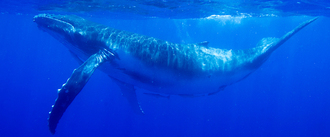.jpg)
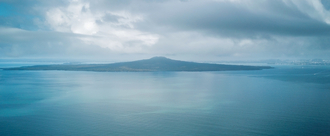.jpg)
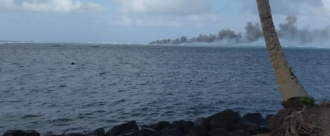
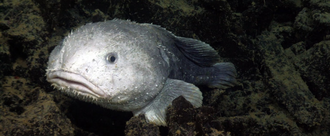
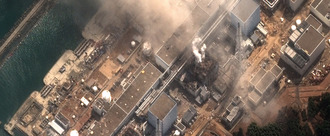
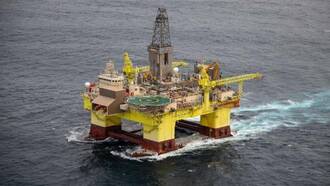.jpg)